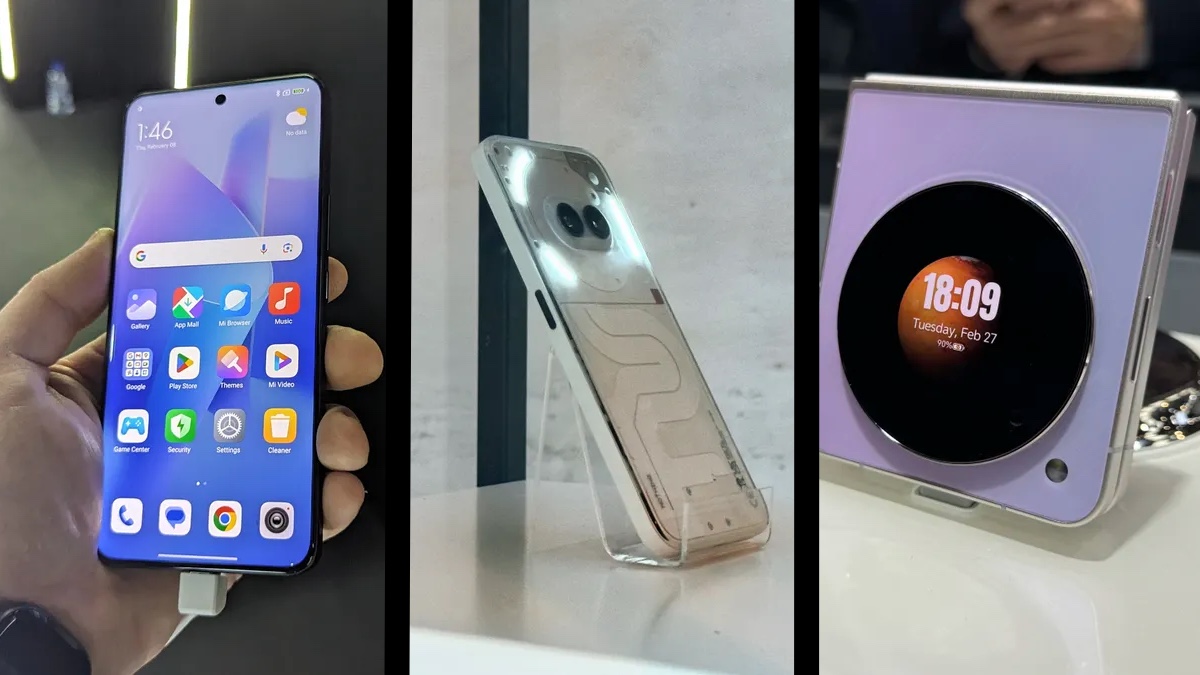
Watching the annual Mobile World Congress (MWC) show from back in my home base of the United States always fills me with a pang of sorrow. First, I am sad that I am not in Spain, eating my full body weight in jamón ibérico. But mostly, I'm sorry to realize that many of the best products of MWC will rarely make their way to my part of the world.
MWC is a global event and, thus, a reminder that people use phones all over the world. Some of those phones are from companies that simply don't bother with the U.S. market for a variety of reasons — the dominance of Apple and Samsung, the headache of trying to line up deals with U.S. carriers — yet still produce devices that would be immediate contenders for best phone, if they were to ever land on these shores.
If there's a silver lining to this, it's that many of the top devices, innovations and trends do make their way over here eventually whether as a rebranded product or in the form of a rival offering developed by a competitor. Imitation may be the sincerest form of flattery, but offering your own take on something you saw elsewhere runs a close second.
So here are the products from MWC 2024 that caught my eye this past week, along with the likelihood that we'll eventually see them reach the U.S. in one form or another.
Xiaomi 14 Ultra
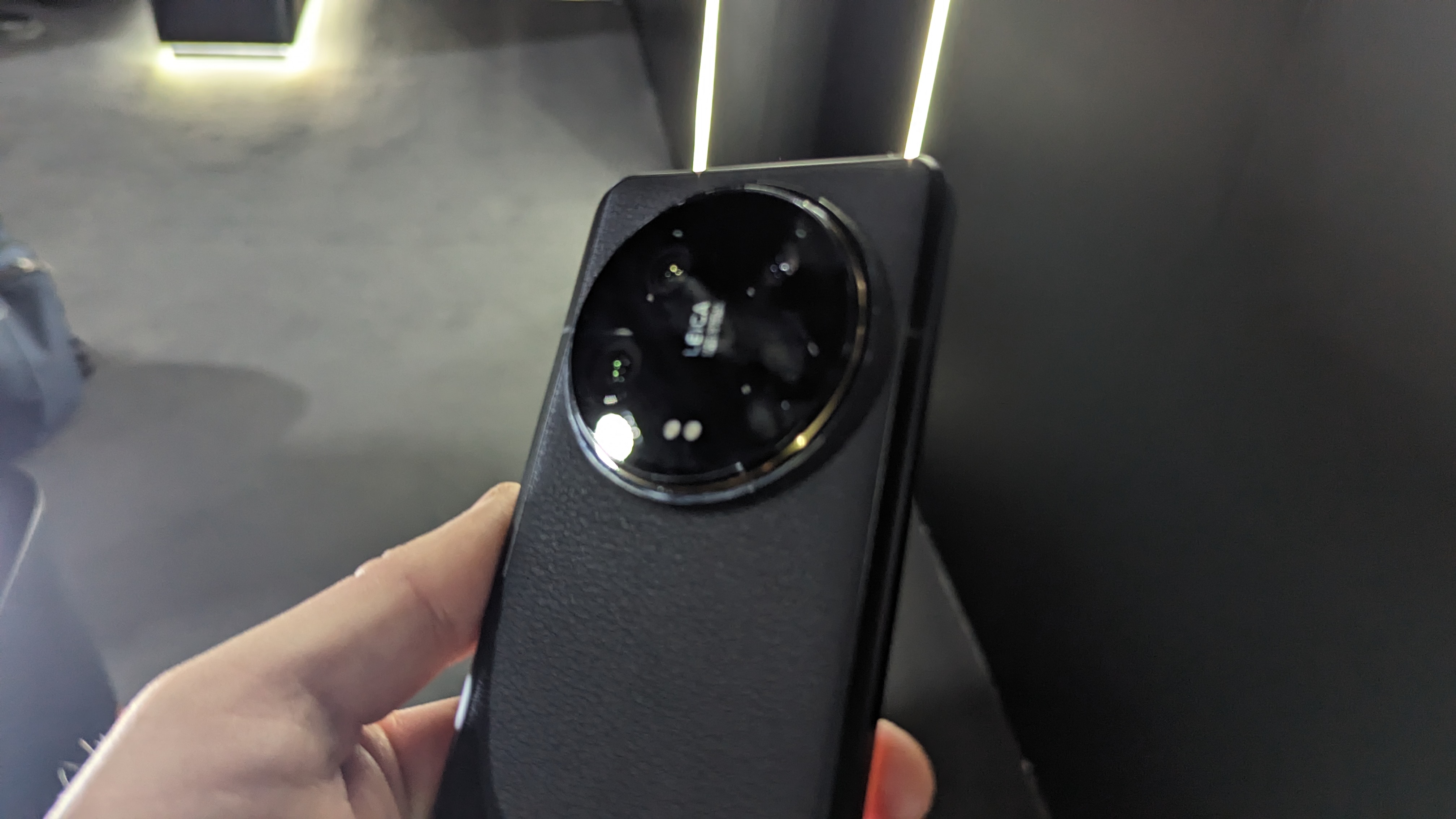
Xiaomi regularly produces some of the best phones to never see the light of day in the U.S., with camera innovations highlighting a lot of what the Chinese phone maker produces. From what my colleagues saw at MWC 2024, the Xiaomi 14 Ultra appears to carry on that tradition.
Xiaomi's new premium phone comes with a rear four-camera array that carries the branding of Leica, the high-end camera and lens maker. The specs of this quad-camera system certainly impress — a 50MP main camera lens with a 50MP ultrawide sensor and a pair of 50MP telephoto lenses. Those latter two shooters offer optical zooms of 3.2x and 5x, and can team up for a hybrid zoom of 30x.
All that sounds impressive enough to land the Xiaomi 14 Ultra among the best camera phones, at least for the folks in Europe who will be able to get their hands on the €1,499 handset. But what caught my attention is the main camera's Stepless Variable Aperture feature which allows you to adjust the aperture of the lens in 0.01 stop increments. That means precise control over how much light you'll capture with each shot — and presumably that will translate to some pretty striking low-light photos.
Will it reach the U.S.?: Given that previous Xiaomi flagships haven't gone on sale in the U.S., we'd say the chances of the Xiaomi 14 Ultra bucking that trend fall somewhere between slim and none.
Still, the idea of variable apertures is one of that other phone makers have reportedly considered — an early Samsung Galaxy S24 Ultra rumor suggested that one of the phone's telephoto lenses might be able to shift between preset apertures, for example. (That didn't materialize ultimately.) So it wouldn't be surprising to see some sort of variable aperture feature find its way into a different phone, even if it's not as sophisticated as what Xiaomi's offering here.
Honor MagicRing and eye-tracking features
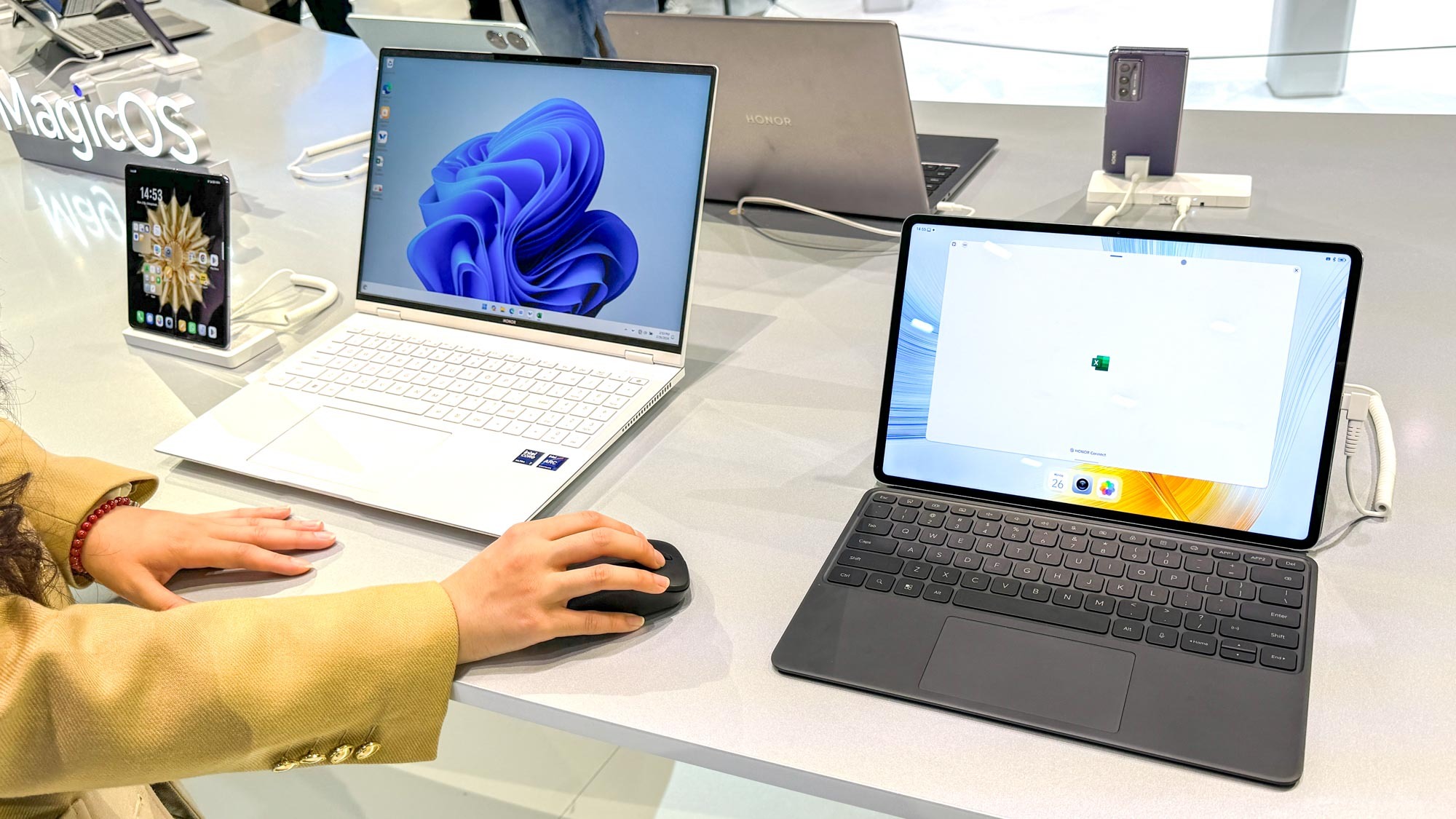
Very few smartphones are going to debut in the next year or so without a lot of fanfare about features that tap into artificial intelligence. Honor's Magic6 Pro is no exception, with the phone maker showing off a pair of features at MWC 2024 that merit some attention.
MagicRing is Honor's attempt to connect its phone to the rest of your devices, making your phone an additional window on one of Honor's tablets or laptops. That allows for easier file transfer, with AI playing a role in device management and swapping files back and forth.
In addition, Honor demonstrated an AI-powered eye tracking capability that will let you check notifications and open apps with a literal glance. The feature's coming to the Honor Magic phone later this year, and it will be focused on the phone's Magic Capsule bar, which is a lot like the Dynamic Island feature on current iPhones.
Will it reach the U.S.?: There's some good news here, though it doesn't involve the Honor Magic6 Pro specifically, as that phone's not going to be for sale in the U.S. Rather, it's that features like MagicRing are already available for some devices.
Samsung's Galaxy flagships have long been able to make use of the DeX feature, which lets you connect your Samsung phone to an external model, essentially turning your handset into a laptop. And Motorola offers a Ready For feature that does much the same thing, and its Smart Connect app developed with parent company Lenovo will let you turn a Windows 11 laptop into a hub for your Motorola phone or Lenovo tablet. I could see features like these adding more MagicRing-esque capabilities down the road.
I'm a bit more skeptical about eye tracking, as the Google Pixel 4 offered a vaguely similar feature called Motion Sense, which allowed you to use gestures to control a limited selection of phone features. Motion Sense lasted one generation of Pixels — it was gone by the Pixel 5 — presumably because it just wasn't very pratical. I'm sure other phone makers will keep an eye on Honor's eye-tracking efforts to see if they give the Magic 6 Pro any sort of competitive advantage.
Nubia Flip 5G
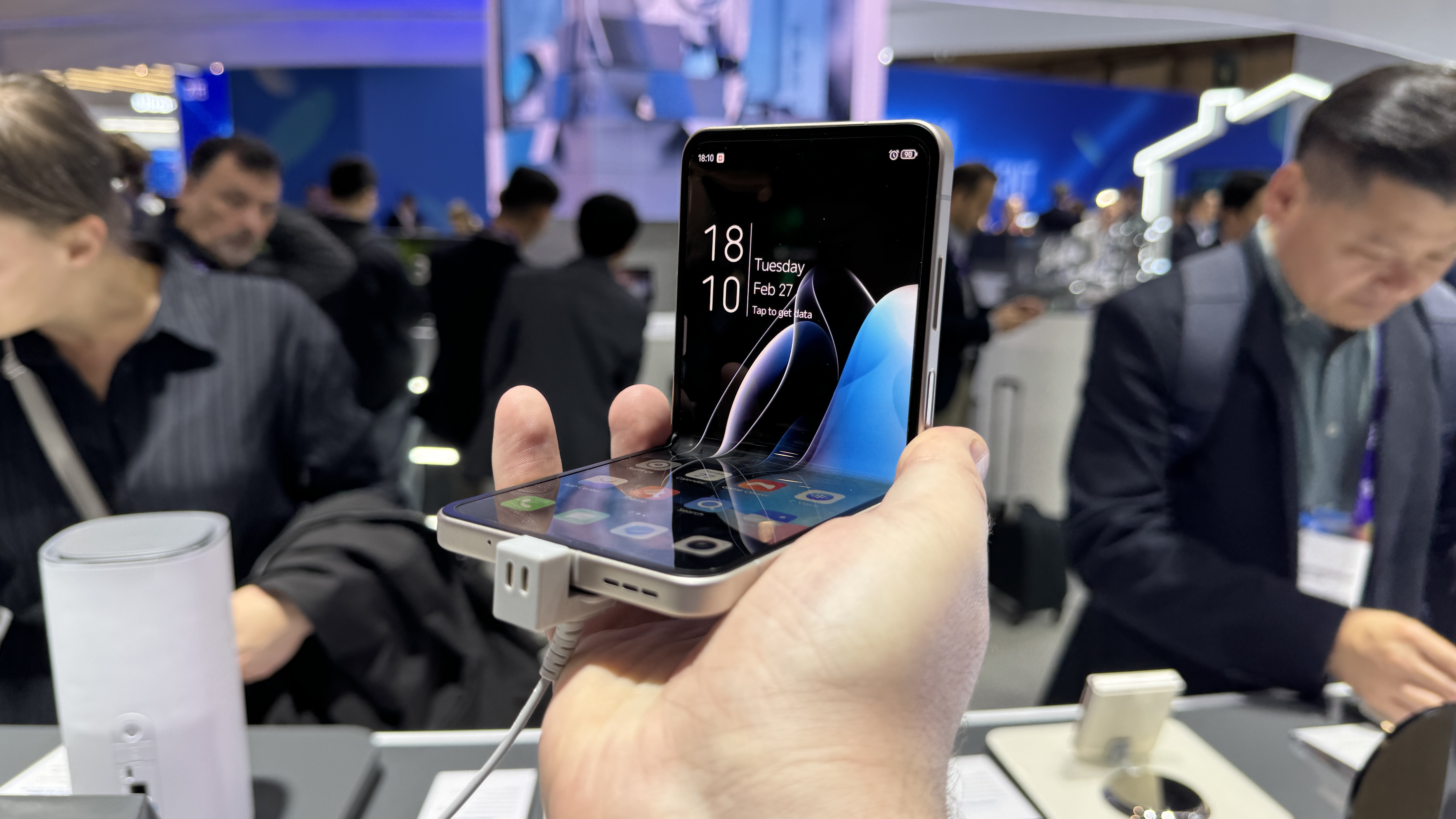
If foldable phones are ever going to be more than curiosities, they're going to have to become more affordable. We started trending in that direction last year with the Motorola Razr (2023), a less expensive version of the Motorola Razr+. The Nubia Flip 5G continues that trend with a $599 asking price — $100 less than what Motorola charges for its cheapest foldable.
My colleague Richard Priday went hands-on with the Nubia Flip 5G and found it to be a solidly-built phone even with its low price in mind. The biggest trade-off appears to be a Snapdragon 8 Gen 1 chipset powering the phone, but the $699 Razr uses the same silicon with no noticeable drain on performance.
Will it reach the U.S.?: Finally, some good news — Nubia is affiliated with ZTE, which does sell phones in the U.S. Maybe we'll see the Nubia Flip 5G under a different name in this country, but it's not out of the question that the phone could ship here in one form or another.
Right now, the biggest question is when we might see the Nubia Flip 5G — not just in the U.S., but anywhere. At MWC 2024, no release date was provided for this low-cost rival to Samsung's Galaxy Z Flip 5.
Nothing Phone 2a
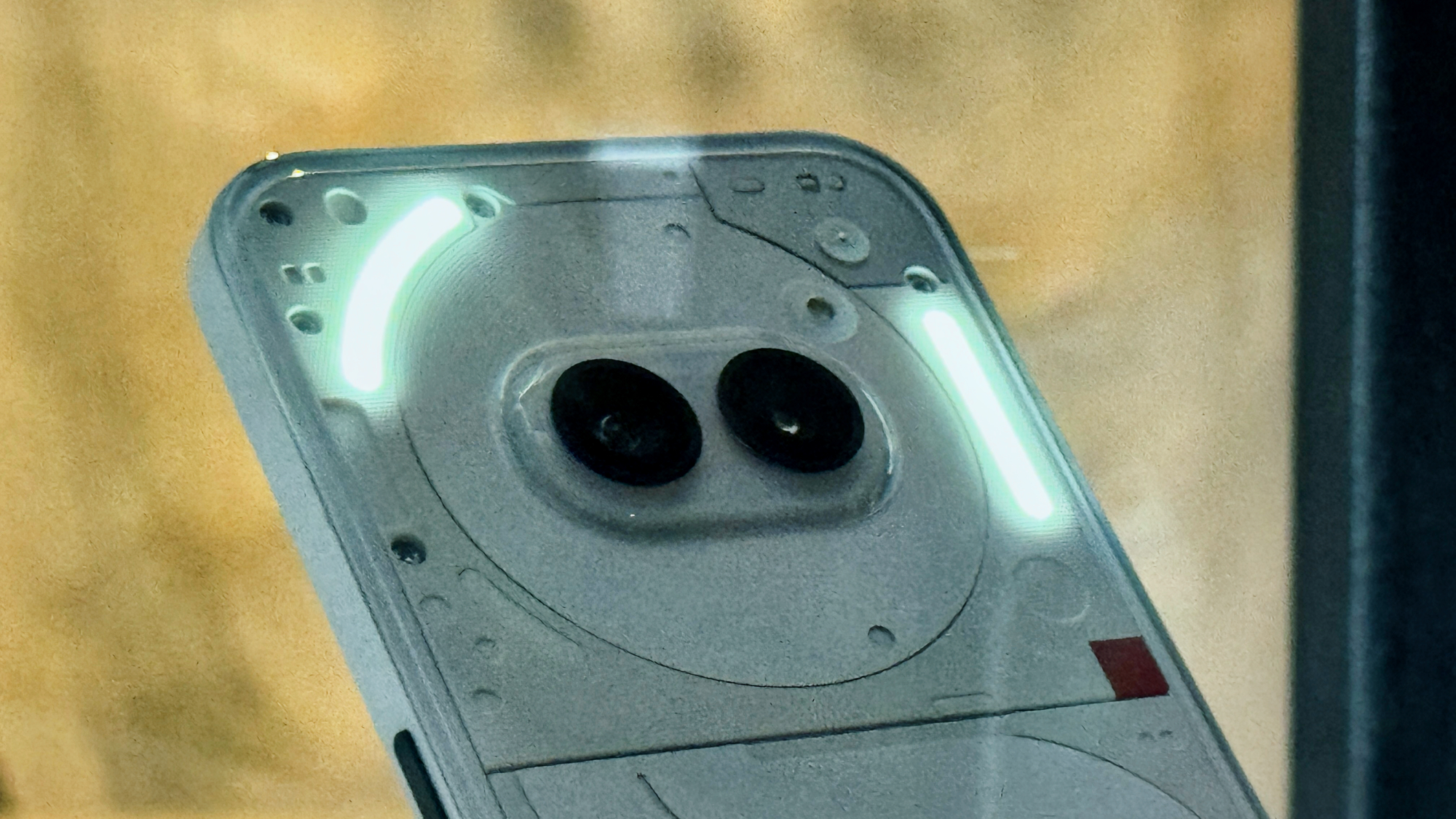
The latest phone from Carl Pei's Nothing didn't debut at Mobile World Congress, but we did get our first official look at the Nothing Phone 2a. And it's a pretty stylish device, especially when you take into account the rumor that this will cost less than the Nothing Phone 2.
Earlier rumors had suggested the signature glyphs that have helped previous Nothing phones stand out from the crowd wouldn't be included on the Nothing Phone 2a as a cost-cutting measure. We're relieved to see that's not the case, not just because the light-up glyphs look cool, but they serve a dual purpose as notification alerts when you place the phone screen down.
Will it reach the U.S.?: Now it's time to hope that another rumor about the Nothing Phone 2a doesn't come true — in this case, a rumor claiming that Nothing won't bring the phone to the U.S., after the Nothing Phone 2 was released here last year. It's a possibility that has me ready to throw up my hands in exasperation as to whether Nothing is a phone maker to take seriously.
Apparently, U.S. shoppers be able to buy the Nothing Phone 2a through the company's developer program — not exactly the best strategy for gaining a wider audience for your fledgling phone company, but better than... well... nothing, I suppose. Expect more details to emerge during the company's Nothing Phone 2a launch event next Tuesday (March 5).
Energizer Hard Case P28K
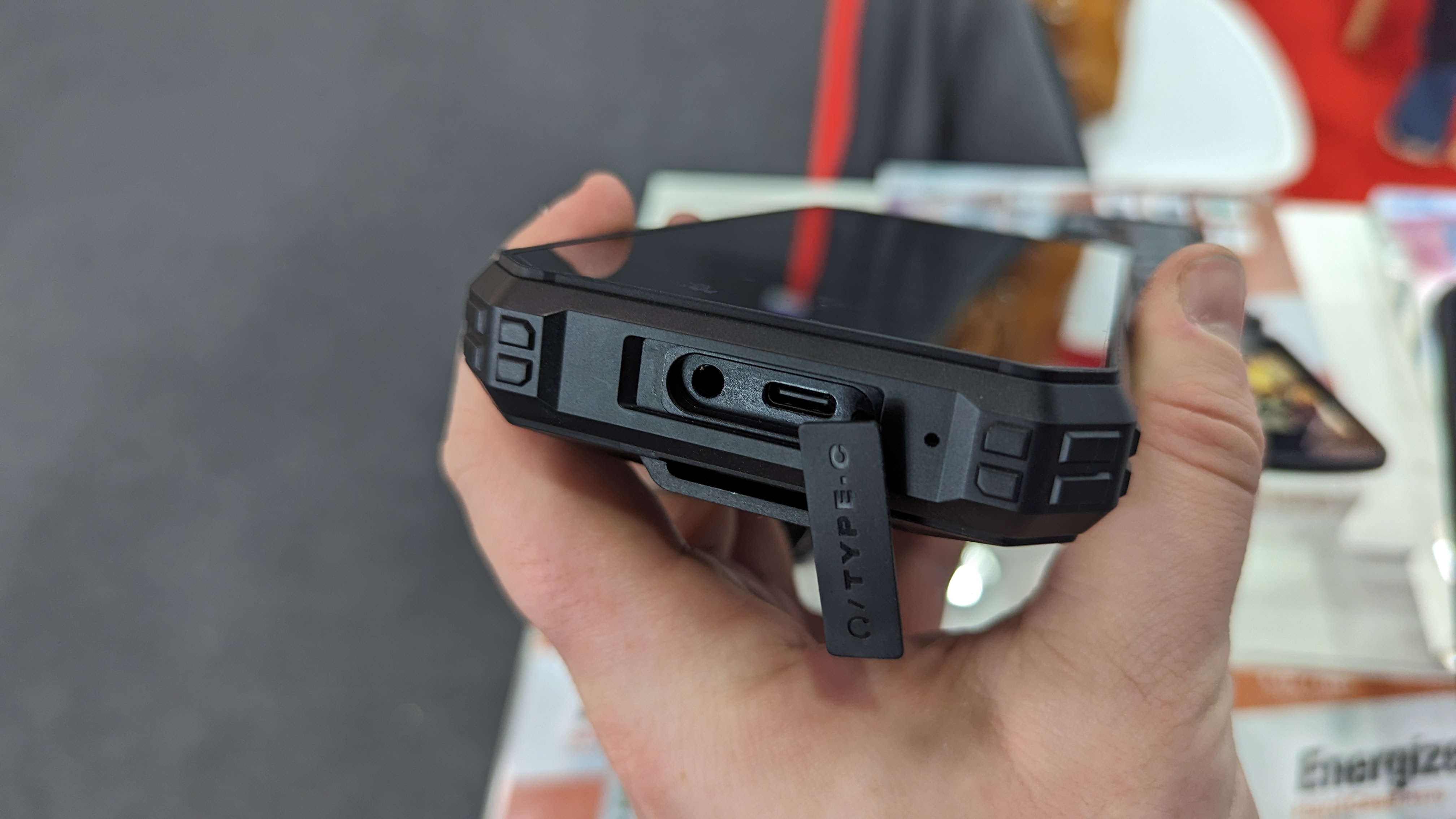
Visit any Mobile World Congress, and you'll run into a display for an Energizer phone, a handset developed by France's Avenir Telecom that uses the branding of the famed battery maker. And as you'd expect, phones named after Energizer last a very long time — like, weeks on end before you need to go looking for a wall charger.
This year's model is the Energizer Hard Case P28K, which boasts a 28,000 mAh battery. To put that battery size in context, the Asus ROG Phone 8 Pro that heads our best phone battery life list lasts more than a day on a 5,500 mAh power pack. So yes, the Energizer Hard Case P28K figures to be the all-time battery champ, even if it won't win any kudos from people who appreciate a svelte handset. Measuring nearly 1.1 inches thick and weighing 20 ounces, the Energizer Hard Case P28K should come with its own sherpa. Still, if you want multi-week battery life, you probably wouldn't complain.
Will it reach the U.S.?: You can complain, however, about the fact that these Energizer phones never seem to show up in the U.S. Then again, given the big improvements we've seen in smartphone battery life as of late — four of the longest-lasting phones we've tested have come out in 2024 — it's hard to feel too stung by the Energizer's absence.







